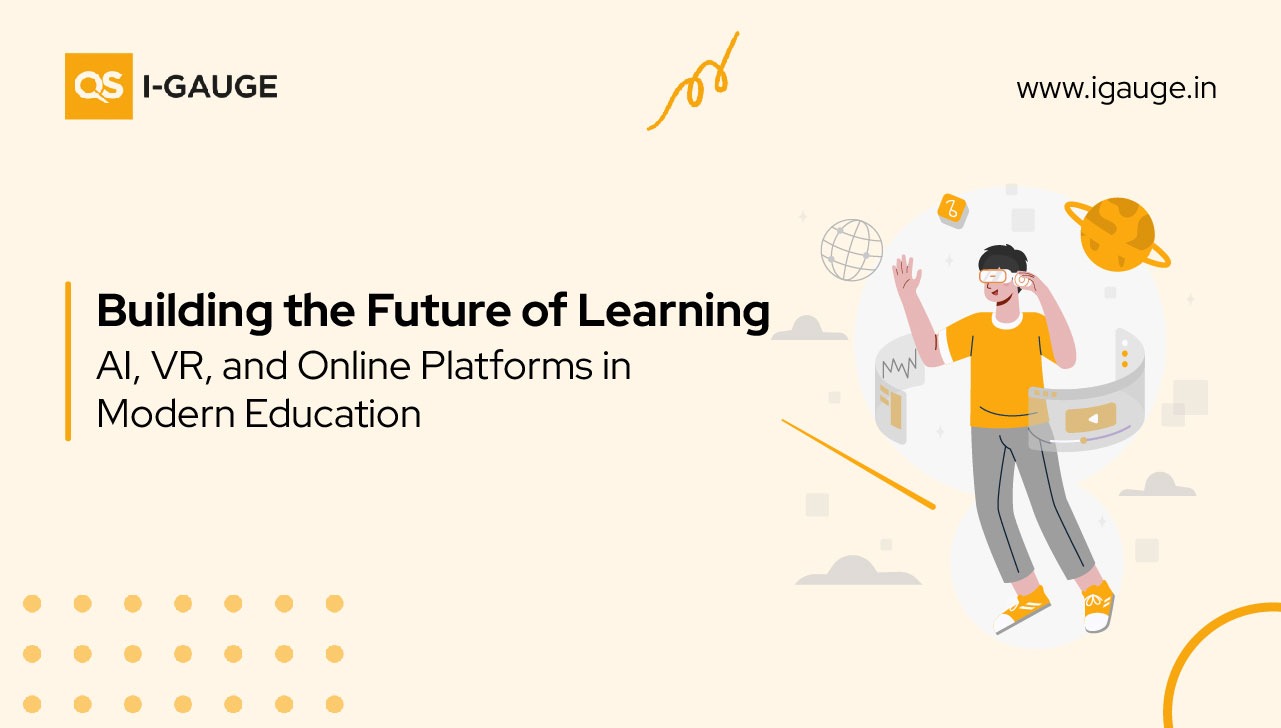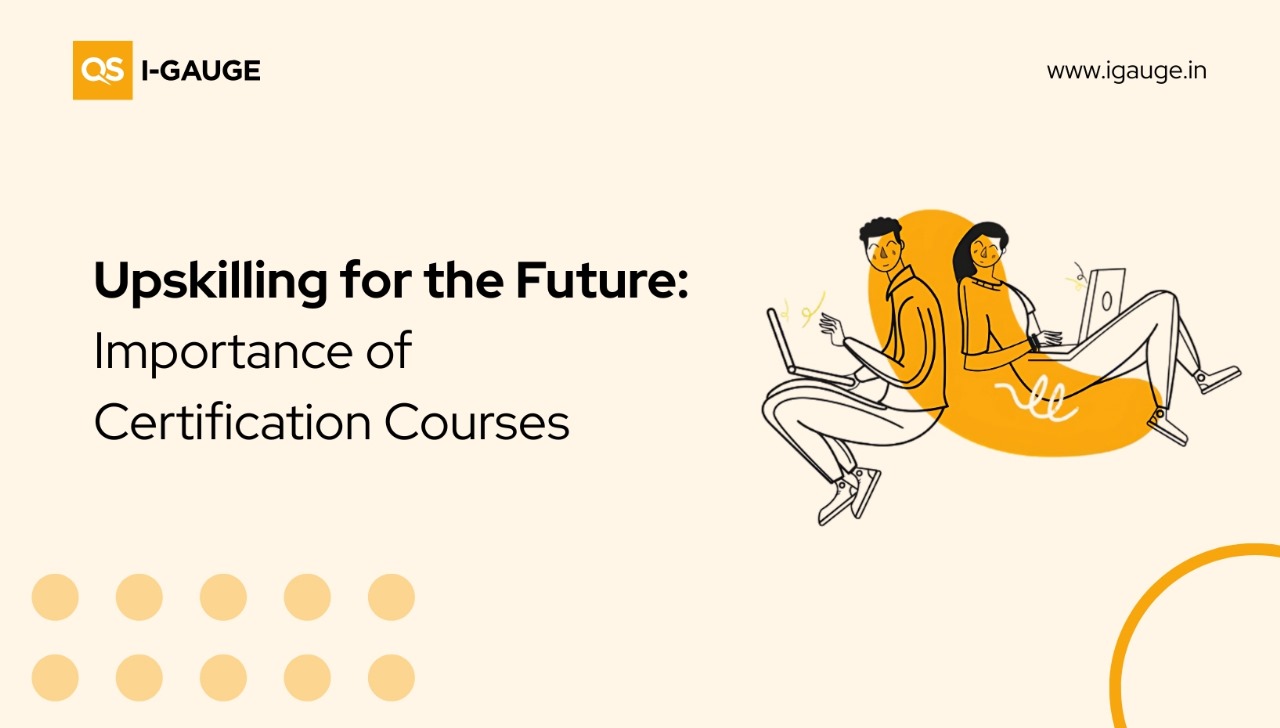
Introduction: The Digital Shift in Education
Education is undergoing a significant transformation, driven by the rapid integration of technology across the learning value chain. The shift is no longer about digitising content—it is about redefining pedagogy, expanding access, and enhancing learner outcomes. Tools like Artificial Intelligence (AI), Virtual Reality (VR), and scalable online platforms are helping institutions align with Outcome-Based Education (OBE), skill-centric learning, and lifelong learning objectives. As higher education recalibrates to meet the demands of Industry 4.0 and beyond, adopting these technologies is becoming mission-critical for institutions seeking to stay relevant and competitive.
Artificial Intelligence: Personalising the Learning Experience
AI is reshaping education by enabling personalised and adaptive learning flexible for everyone. With the ability to analyse learning patterns, AI systems tailor content to each student's needs, improving retention and academic performance.
Case Study: Carnegie Learning, USA
Carnegie Learning’s MATHia platform adapts in real-time, offering personalised guidance and feedback. Schools using MATHia have reported a twofold increase in proficiency. A McKinsey report further projects that AI-enhanced learning platforms can improve student outcomes by up to 30%. 1
In India, platforms such as Vedantu and Toppr leverage AI to create customised learning paths, improving student engagement and test performance. Additionally, intelligent tutoring systems are identifying at-risk students early, allowing educators to intervene with precision.2
Policy Alignment: India’s National Education Policy 2020 supports AI integration across school and higher education curricula. This initiative is complemented by private efforts like Vizuara, which has successfully introduced AI literacy to over 25 schools, supported by teacher training and hands-on projects. 3
Virtual Reality: Immersive and Experiential Learning
VR bridges the gap between theoretical instruction and experiential learning. By creating simulated environments, VR allows learners to interact with complex scenarios that would otherwise be inaccessible or high-risk.
Case Study: Labster, Denmark
Labster’s virtual science labs saw a 400% rise in adoption during the pandemic. Institutions using the platform reported a 76% improvement in student performance over traditional lab setups. 4
Global Examples:
- Stanford University integrated VR into biology courses, leading to significantly higher retention.5
- University of Illinois deployed VR for medical simulations, improving procedural accuracy. 6
- Singapore’s AI Learning Lab combined VR with analytics to enhance engagement and academic success. 7
- ISENSE Project created VR platforms for teaching sign language with real-time feedback. 8
In India, platforms like Veative Labs offer VR/AR modules tailored to STEM education, enhancing conceptual clarity and personalised learning across regions and languages.9
Online Platforms: Democratising Access and Scalability
Online platforms are enabling flexible, inclusive education on a scale never seen before. Massive Open Online Course - MOOCs, hybrid programs, and institution-specific LMS solutions are expanding access to quality education—irrespective of geography or socio-economic background.
Case Study: SWAYAM, India
SWAYAM offers over 2,000 courses from top Indian institutions. With more than 31 million users and 5 million certified learners as of 2023, it exemplifies the power of government-supported online education.10
Institutional Examples:
- Indian School of Business (ISB), Hyderabad, Telangana uses a hybrid model to deliver high-quality executive education to working professionals. 11
- Manipal Academy of Higher Education (MAHE), Manipal, Karnataka integrates virtual labs and e-learning modules to boost employability through skill-based learning. 12
Global platforms like Coursera, edX, and Udacity report that over 60% of their users are professionals seeking to upskill—indicating a growing emphasis on lifelong learning and validation.
Key Statistics and Trends
UNESCO: Blended learning models enhance student engagement by up to 50%. 13
- HolonIQ (2022): Global edtech investment surpassed $20 billion. 14
- EDUCAUSE (2023): Institutions integrating adaptive tech saw 30% improvement in retention. 15
- Stanford Medicine: VR in medical education led to a 25–30% increase in procedural accuracy. 16
- World Economic Forum: Over 50% of the global workforce will need reskilling by 2025. 17
- PwC: VR learners retain information 4x better than those in traditional learning environments. 18
- McKinsey: 87 million jobs could be automated by 2030, underscoring the urgency of reskilling. 19
Conclusion:
Building a Future-Ready Education Ecosystem Through Strategic Adoption
- Technology is a catalyst for transformation but requires thoughtful, quality-assured implementation to avoid widening learning gaps.
- Faculty development and training in digital pedagogy are essential for effective adoption.
- Infrastructure scalability and data privacy must be prioritised to support sustainable digital learning environments.
- Alignment with learning outcomes, accreditation standards, and national frameworks ensures relevance and quality.
- Collaboration with edtech partners helps co-create impactful, context-specific solutions.
- Inclusive strategies must be adopted to provide equitable access to technology across diverse regions and learner groups.
- The convergence of AI, VR, and online platforms is shaping an agile, learner-centric, and outcome-driven education ecosystem.
- Institutions that treat technology as a strategic asset are better positioned to deliver scalable, high-quality, and future-ready education.
Disclaimer:
The blog is curated by referring to various credible sources and does not necessarily reflect the opinions or positions of QS I-GAUGE. The information provided is for general informational purposes only, readers are advised to conduct their own research and seek professional advice before making any decisions.
References:
https://discover.carnegielearning.com/meet-mathia 1
https://yourstory.com/2019/02/edtech-startup-vedantu-artificial-intelligence 2
https://www.ey.com/en_in/insights/education/how-ai-is-activating-step-changes-in-indian-education3 3
https://www.labster.com/blog/staying-ahead-of-covid 4 4
https://ieeexplore.ieee.org/document/10405777 8
https://yourstory.com/2017/05/veative-labs 9
https://www.unesco.org/sdg4education2030/en/knowledge-hub/national-guidelines-blended-learning 13
https://vhil.stanford.edu/about/projects 16 16
https://www.weforum.org/publications/the-future-of-jobs-report-2020/ 17
https://www.pwc.com/us/en/tech-effect/emerging-tech/virtual-reality-study.html 18
https://www.mckinsey.com/featured-insights/future-of-work/the-future-of-work-after-covid-19 19



